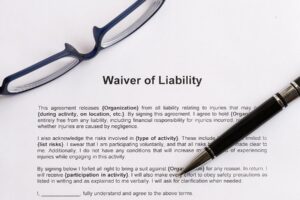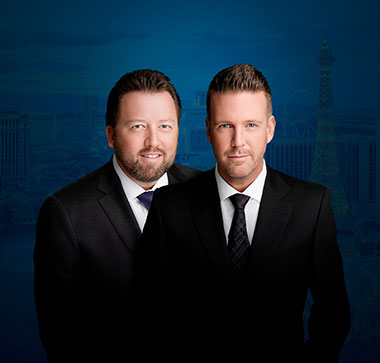You Should Examine the Actual Language of the Waiver and the Cause of the Harm

Riding horses, dune buggy’s, ATV’s, Side by sides, rollercoasters, exotic cars, zip lines, are all types of activities where express assumption of the risk contracts are likely signed by customers. The question is whether such contracts are enforceable as there are often negligent aspects not contemplated by unsuspecting riders. Safety devices must be utilized—rolling over or a rollover in an off-road vehicle has inherent risks of injury including head and arm injuries. Often these anticipated injuries can be eliminated with proper protection via helmets, safety belts and limiting nets. Obviously, certain injuries will never be prevented and are presumably contemplated by the rider as one may rollover and hit a large rock crushing the cabin. But, other times, the rollover may be easily survivable, and operators and manufacturers are aware of the most common risks like human reaction. It is human reaction to reach out during a rollover. Netting and arm straps are common safety features that prevent arms from stretching to the danger zone of pinching or amputation of the body part. Failure of the recreation operator to mandate and provide such usage may be negligent and not protected by a waiver.
Nevada Law and Understanding Your Risks
In Kuchta (July 2020), The Nevada Court of Appeals, discussed this issue confirming a rider or participant in a recreational activity must have exercised the actual knowledge element, and that simply signing a waiver is not the end of the story. (Kuchta v. Sheltie Opco, LLC, NO 76566-COA, Doc 20-25257, July 8, 2020 *Unpublished.)
In contract law, the doctrine of the Parol evidence rule governs written contracts such that extraneous information may be barred from interpretation if not contained within the “four corners” of the contract. Thus, a contract attempting to limit liability in whole or part, must specifically state, “this writing is a final agreement between the parties” and further go on to specify exactly and specifically the risks of harms present to the rider such that the real harms are communicated to the participant. This crucial element will eliminate any outside information from being “read into the contract.” One may skydive, and understand that the risk of falling to your death may be real, but if the skydiving company fails to pack your shoot properly, a reasonable rider may not have anticipated this; similarly, if you ride an ATV that fails to stop, and the brakes are not maintained causing an accident, this too may be outside the scope of waiver protection. Thus, this triggers a reading of the waiver as a final understanding of the parties such that no other conversations or information can be inferred and that the waiver itself is unambiguous; however, in Nevada, a deeper analysis is required which allows juries to decide whether collectively, all the facts considered in the totality of circumstances, favor limiting the liability or not. In Mitzushima, the NV Court recognized the above factors and stated that such an assumption of the risk should really be classified as comparative negligence. Mizushima v. Sunset Ranch, Inc., 737 P.2d 1158 (1987). Thus, what did the rider actually know and observe that may diminish the liability of the adventure company. Did the agent who gave you the 30 second tutorial on how to ride downplay the risks and fail to educate a rider on the real risks?
To be sure, every case must be analyzed to see if a participant, despite signing a “waiver” can collect damages for negligence cause by the proprietor. To learn more about your legal options, contact Benson & Bingham Accident Injury Lawyers, LLC for a free consultation today.
626 S 10th St
Las Vegas, NV 89101
(702) 382-9797

